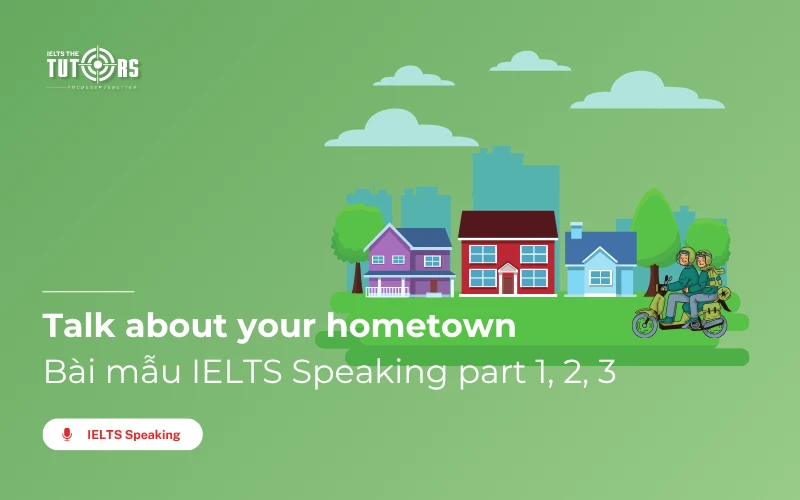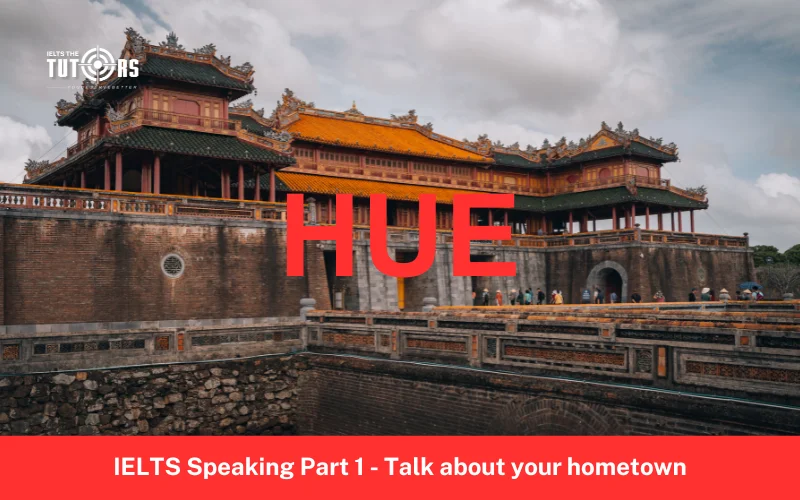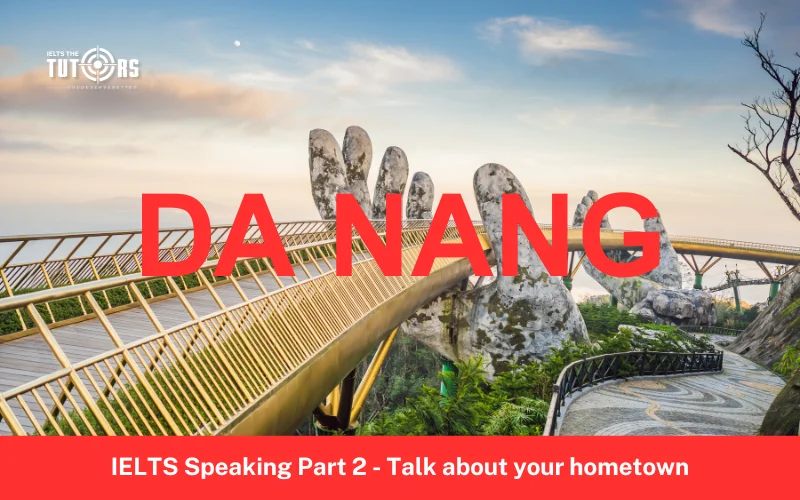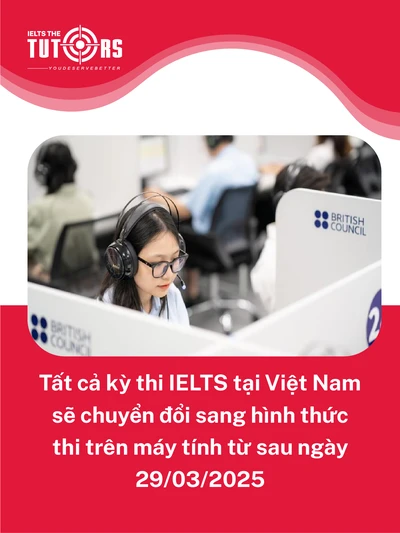
Hometown là nơi bạn lớn lên và gắn bó, không chỉ là một địa danh mà còn là nơi chứa đựng những kỷ niệm đáng nhớ và bản sắc văn hóa đặc trưng. Khi tham gia kỳ thi IELTS, một trong những chủ đề thường xuyên xuất hiện trong phần Speaking chính là “Talk about your hometown” – nói về quê hương của bạn. Đây là cơ hội để bạn thể hiện khả năng diễn đạt thông tin, từ những mô tả đơn giản về vị trí và đặc điểm, cho đến những suy nghĩ sâu sắc về sự phát triển và văn hóa đặc trưng của vùng đất nơi mình sinh sống.
Trong bài viết này, chúng tôi sẽ cung cấp cho bạn từ vựng và các bài mẫu IELTS Speaking Part 1, Part 2 và Part 3 liên quan đến chủ đề “Talk about your hometown”, giúp bạn làm quen với cách trả lời tự nhiên, mạch lạc và hiệu quả để đạt điểm cao trong kỳ thi IELTS.
Bài mẫu topic Talk about your hometown – IELTS Speaking Part 1
Trong phần IELTS Speaking Part 1, topic hometown là một trong những câu hỏi phổ biến và được hỏi rất nhiều. Dưới đây là những câu hỏi thường gặp liên quan đến chủ đề này trong Part 1:
Question 1: Where is your hometown?
I’m from Hue, a charming city in central Vietnam. It’s well-known for its historical landmarks, like the Imperial City, and its peaceful atmosphere. Despite its relatively small size, it attracts thousands of tourists each year
Vocabulary:
- charming (adj): quyến rũ, hấp dẫn.
- historical landmarks (n): các địa danh lịch sử.
- peaceful atmosphere (n): không khí yên bình.
- relatively (adv): tương đối.
- attract (v): thu hút.
Question 2: What do you like most about your hometown?
What I love most about my hometown is its rich cultural heritage. Hue is famous for its traditional music, festivals, and cuisine, especially dishes like bun bo Hue and banh beo. I also appreciate how serene the environment is. It's a perfect place to relax and unwind.
Vocabulary:
- rich cultural heritage (n): di sản văn hóa phong phú.
- traditional music (n): âm nhạc truyền thống.
- serene (adj): yên tĩnh, thanh bình.
- relax and unwind (v): thư giãn và xả stress.

Question 3: What is your hometown famous for?
Hue is widely recognized for its historical significance as the former imperial capital of Vietnam. Tourists flock to see the ancient royal tombs, pagodas, and the picturesque Perfume River. It’s also known for its traditional food, which reflects the city’s royal influences.
Vocabulary:
- widely recognized (adj): được công nhận rộng rãi.
- historical significance (n): ý nghĩa lịch sử.
- former (adj): trước đây.
- imperial capital (n): kinh đô hoàng gia.
- flock to (v): đổ về, kéo đến (thường để nói về du khách).
- picturesque (adj): đẹp như tranh.
- royal influences (n): ảnh hưởng hoàng gia.
Question 4: Has your hometown changed much in recent years?
Yes, it has undergone significant changes over the past decade. While it still retains its historical charm, there has been considerable development in infrastructure, like new roads and bridges. However, this modernization hasn’t disrupted its traditional essence.
Vocabulary:
- undergone (v): trải qua.
- significant changes (n): những thay đổi đáng kể.
- retain (v): giữ lại.
- considerable development (n): sự phát triển đáng kể.
- traditional essence (n): bản chất truyền thống.
Question 5: What kinds of jobs do people in your hometown usually do?
Most people in Hue work in tourism and hospitality since the city attracts a lot of visitors. Others are involved in traditional handicrafts, like making conical hats or painting. There’s also a growing number of professionals working in education and healthcare.
Vocabulary:
- tourism and hospitality (n): ngành du lịch và dịch vụ.
- traditional handicrafts (n): các nghề thủ công truyền thống.
- conical hats (n): nón lá.
- education and healthcare (n): giáo dục và chăm sóc sức khỏe.
Question 6: Does your hometown have a lot of tourists?
Absolutely! Hue is one of the most popular tourist destinations in Vietnam. It attracts millions of visitors every year, especially during holiday seasons and cultural festivals. People come to explore the ancient citadel, royal tombs, and pagodas, as well as to enjoy the traditional cuisine. The city has done a great job developing its tourism infrastructure, with plenty of hotels, restaurants, and guided tours to cater to tourists.
Vocabulary:
- popular tourist destination (n): điểm đến du lịch nổi tiếng.
- attract (v): thu hút.
- millions of visitors (n): hàng triệu khách du lịch.
- explore (v): khám phá.
- tourism infrastructure (n): cơ sở hạ tầng du lịch.
- cater to (v): phục vụ nhu cầu của.
Bài mẫu topic Talk about your hometown IELTS Speaking Part 2

Cue card: Describe your hometown
You should say:
- Where it is located
- What it is known for
- What you like most about it
And explain whether it is a good place to live.
My hometown is Da Nang, a vibrant coastal city located in central Vietnam. It is widely recognized as one of the most beautiful cities in the country, thanks to its stunning beaches, such as My Khe Beach, and its proximity to cultural and historical landmarks like Hoi An Ancient Town and the Marble Mountains.
What makes Da Nang unique is its perfect balance between natural beauty and modern development. You can enjoy breathtaking ocean views in the morning and explore the city’s bustling nightlife in the evening.
What I love most about my hometown is the friendly atmosphere and the sense of community. People here are warm and welcoming, which makes it easy to feel at home. The city is also very clean, well-organized, and offers a peaceful lifestyle compared to larger cities like Hanoi or Ho Chi Minh City.
In my opinion, Da Nang is definitely a great place to live. It provides excellent quality of life with affordable living costs, good job opportunities in tourism and IT, and a safe environment for families. While it may lack the hustle and bustle of bigger cities, its charm lies in its tranquility and natural beauty.
Vocabulary:
- vibrant (adj): sôi động.
- widely recognized (adj): được công nhận rộng rãi.
- stunning beaches (n): những bãi biển tuyệt đẹp.
- breathtaking (adj): ngoạn mục.
- sense of community (n): cảm giác cộng đồng.
- hustle and bustle (n): sự nhộn nhịp và sôi động.
- tranquility (n): sự yên bình.
Dịch nghĩa:
Quê hương của tôi là Đà Nẵng, một thành phố ven biển sôi động nằm ở miền Trung Việt Nam. Đà Nẵng được biết đến rộng rãi như một trong những thành phố đẹp nhất cả nước, nhờ những bãi biển tuyệt đẹp như bãi biển Mỹ Khê và sự gần gũi với các địa danh văn hóa, lịch sử nổi tiếng như Phố cổ Hội An và Ngũ Hành Sơn.
Điều khiến Đà Nẵng trở nên đặc biệt là sự cân bằng hoàn hảo giữa vẻ đẹp tự nhiên và sự phát triển hiện đại. Bạn có thể tận hưởng khung cảnh đại dương ngoạn mục vào buổi sáng và khám phá cuộc sống về đêm nhộn nhịp của thành phố vào buổi tối.
Điều tôi yêu thích nhất ở quê hương mình là bầu không khí thân thiện và cảm giác cộng đồng. Người dân ở đây rất nồng hậu và hiếu khách, điều này khiến bạn dễ dàng cảm thấy như đang ở nhà. Thành phố cũng rất sạch sẽ, được tổ chức tốt và mang lại lối sống yên bình hơn so với các thành phố lớn như Hà Nội hay Thành phố Hồ Chí Minh.
Theo ý kiến của tôi, Đà Nẵng chắc chắn là một nơi tuyệt vời để sống. Thành phố cung cấp chất lượng cuộc sống tuyệt vời với chi phí sinh hoạt phải chăng, nhiều cơ hội việc làm trong ngành du lịch và công nghệ thông tin, cùng một môi trường sống an toàn cho các gia đình. Mặc dù có thể thiếu sự nhộn nhịp như các thành phố lớn, nhưng sự cuốn hút của nó nằm ở sự yên bình và vẻ đẹp tự nhiên.
Xem thêm:
Bài mẫu topic Talk about your hometown IELTS Speaking Part 3
Question 1: What are the advantages and disadvantages of living in your hometown?
Living in my hometown offers several advantages. For one, it has a relatively low cost of living compared to larger cities, which makes it more affordable for families. Additionally, it’s known for its clean environment and friendly community, which contribute to a peaceful lifestyle. However, there are also disadvantages. For instance, public transportation is not very well developed, which can be inconvenient for daily commuting. Moreover, job opportunities in specialized fields are somewhat limited, forcing many young people to move to larger cities in search of better prospects.
Vocabulary:
- Low cost of living (n): chi phí sinh hoạt thấp
- Friendly community (n): cộng đồng thân thiện
- Peaceful lifestyle (n): lối sống yên bình
- Public transportation (n): giao thông công cộng
- Job opportunities (n): cơ hội việc làm
- Specialized fields (n): các lĩnh vực chuyên môn
Question 2: How important is it to preserve the culture of your hometown?
I believe it’s absolutely crucial to preserve the culture of my hometown. Cultural heritage not only represents the identity and history of the community but also fosters a sense of pride and belonging among its residents. For example, in my hometown, we have traditional festivals that attract both locals and tourists, helping to maintain the cultural legacy. However, with globalization and modernization, there’s a risk of losing some of these traditions, so efforts should be made to educate younger generations and promote cultural awareness through schools and local initiatives.
Vocabulary:
- Cultural heritage (n): di sản văn hóa
- Identity (n): bản sắc
- Pride and belonging (n): tự hào và cảm giác thuộc về
- Traditional festivals (n): lễ hội truyền thống
- Globalization (n): toàn cầu hóa
- Cultural awareness (n): nhận thức văn hóa
- Promote (v): thúc đẩy, khuyến khích
Question 3: Do you think people in your hometown have a good quality of life? Why or why not?
Overall, I think the quality of life in my hometown is relatively high. Most people have access to essential services, such as healthcare and education, and the city is known for its safety and low crime rate. Additionally, the clean environment and abundance of green spaces, like parks and riversides, make it an ideal place for families. However, there are still areas for improvement, such as traffic management and providing better recreational facilities for young people. Addressing these issues could further enhance the quality of life for everyone.
Vocabulary:
- Access to services (n): tiếp cận các dịch vụ
- Safety (n): sự an toàn
- Low crime rate (n): tỷ lệ tội phạm thấp
- Green spaces (n): không gian xanh
- Recreational facilities (n): cơ sở vật chất giải trí
- Traffic management (n): quản lý giao thông
- Air quality (n): chất lượng không khí
Từ vựng thông dụng trong Talk about your hometown
Về địa lý và đặc điểm của hometown
| Từ vựng | Phiên âm | Loại từ | Ý nghĩa |
| Location | /ləʊˈkeɪʃən/ | Noun | Vị trí |
| Situated | /ˈsɪtʃʊeɪtɪd/ | Adj | Nằm ở |
| Suburb | /ˈsʌbɜːb/ | Noun | Ngoại ô |
| Countryside | /ˈkʌntrɪsaɪd/ | Noun | Nông thôn |
| Urban area | /ˈɜːbən ˈɛə̯rɪə/ | Noun | Khu vực đô thị |
| Rural area | /ˈrʊərəl ˈɛə̯rɪə/ | Noun | Khu vực nông thôn |
| Coastal | /ˈkəʊstəl/ | Adj | Ven biển |
| Hillside | /ˈhɪlˌsaɪd/ | Noun | Sườn đồi |
| Scenic | /ˈsiːnɪk/ | Adj | Đẹp, có phong cảnh đẹp |
| District | /ˈdɪstrɪkt/ | Noun | Quận, khu vực |
| Region | /ˈriːdʒən/ | Noun | Vùng miền |
| Nearby | /ˈnɪəˌbaɪ/ | Adj | Gần |
| Neighbourhood | /ˈneɪbəhʊd/ | Noun | Khu phố |
| Capital city | /ˈkæpɪtl ˈsɪti/ | Noun | Thủ đô |
| Population | /ˌpɒpjʊˈleɪʃən/ | Noun | Dân số |
| Size | /saɪz/ | Noun | Kích thước, diện tích |
Về sự phát triển và thay đổi của hometown
| Từ vựng | Phiên âm | Loại từ | Ý nghĩa |
| Development | /dɪˈvɛləpmənt/ | Noun | Sự phát triển |
| Growth | /ɡrəʊθ/ | Noun | Sự tăng trưởng |
| Urbanization | /ˌɜːbənaɪˈzeɪʃən/ | Noun | Sự đô thị hóa |
| Modernization | /ˌmɒdərnaɪˈzeɪʃən/ | Noun | Sự hiện đại hóa |
| Expansion | /ɪksˈpænʃən/ | Noun | Sự mở rộng |
| Transformation | /ˌtrænsfɔːˈmeɪʃən/ | Noun | Sự thay đổi |
| Progress | /ˈprəʊɡres/ | Noun | Sự tiến bộ |
| Infrastructural improvements | /ˌɪnfrəˈstrʌktʃərəl ɪmˈpruːvmənts/ | Noun | Cải thiện cơ sở hạ tầng |
| Upgrade | /ˈʌpɡreɪd/ | Verb | Nâng cấp |
| Gentrification | /ˌdʒɛntrɪfɪˈkeɪʃən/ | Noun | Sự cải tạo đô thị |
Về văn hóa và xã hội
| Từ vựng | Phiên âm | Loại từ | Ý nghĩa |
| Cultural heritage | /ˈkʌltʃərəl ˈhɛrɪtɪdʒ/ | Noun | Di sản văn hóa |
| Tradition | /trəˈdɪʃən/ | Noun | Truyền thống |
| Custom | /ˈkʌstəm/ | Noun | Phong tục |
| Festival | /ˈfɛstɪvəl/ | Noun | Lễ hội |
| Community | /kəˈmjuːnɪti/ | Noun | Cộng đồng |
| Diversity | /daɪˈvɜːsɪti/ | Noun | Sự đa dạng |
| Multicultural | /ˌmʌltɪˈkʌltʃərəl/ | Adj | Đa văn hóa |
| Local customs | /ˈləʊkəl ˈkʌstəmz/ | Noun | Phong tục địa phương |
| Cultural events | /ˈkʌltʃərəl ɪˈvɛnts/ | Noun | Sự kiện văn hóa |
| Sense of belonging | /sɛns əv bɪˈlɒŋɪŋ/ | Noun | Cảm giác thuộc về |
| Pride | /praɪd/ | Noun | Niềm tự hào |
| Identity | /aɪˈdɛntɪti/ | Noun | Bản sắc |
| Local cuisine | /ˈləʊkəl kwɪˈziːn/ | Noun | Ẩm thực địa phương |
| Traditional | /trəˈdɪʃənl/ | Adj | Truyền thống |
| Indigenous | /ɪnˈdɪdʒɪnəs/ | Adj | Bản địa |
Về môi trường và cảnh quan
| Từ vựng | Phiên âm | Loại từ | Ý nghĩa |
| Green spaces | /ɡriːn speɪsɪz/ | Noun | Không gian xanh |
| Parks | /pɑːks/ | Noun | Công viên |
| Nature | /ˈneɪtʃər/ | Noun | Thiên nhiên |
| Wildlife | /ˈwaɪldlaɪf/ | Noun | Động vật hoang dã |
| Pollution | /pəˈluːʃən/ | Noun | Ô nhiễm |
| Air quality | /ɛə ˈkwɒləti/ | Noun | Chất lượng không khí |
| Waste disposal | /weɪst dɪsˈpəʊzl/ | Noun | Xử lý rác thải |
| Sustainability | /səsˌteɪnəˈbɪləti/ | Noun | Tính bền vững |
| Eco-friendly | /ˈiːkəʊ ˈfrɛndli/ | Adj | Thân thiện với môi trường |
| Conservation | /ˌkɒnsəˈveɪʃən/ | Noun | Bảo tồn |
| Littering | /ˈlɪtərɪŋ/ | Noun | Việc vứt rác bừa bãi |
| Climate | /ˈklaɪmət/ | Noun | Khí hậu |
| Natural resources | /ˈnætʃərəl rɪˈzɔːsɪz/ | Noun | Tài nguyên thiên nhiên |
Xem thêm: Từ vựng IELTS theo chủ đề thông dụng nhất không thể bỏ qua
Trong bài viết này, IELTS The Tutors đã gửi đến các bạn bài mẫu IELTS Speaking Part 1, 2, 3 chủ đề Talk about your hometown cùng hệ thống từ vựng quan trọng cần nắm vững để đạt được điểm cao. Hy vọng rằng, các kiến thức trên sẽ giúp ích bạn trong hành trình luyện thi IELTS. Chúc bạn thành công!












